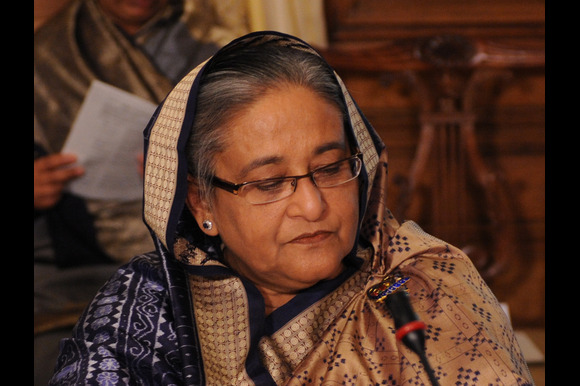Bangladesh’s former prime minister Sheikh Hasina has forcefully rejected accusations that she committed crimes against humanity during the violent suppression of last year’s mass uprising that removed her from power. Her remarks come just days before a special tribunal is scheduled to announce its verdict in the high-profile case.
Hasina stands accused of orchestrating the deadly state response to anti-government demonstrations that erupted in 2024, charges she has repeatedly dismissed as politically engineered.
In her first interview with the BBC since fleeing Bangladesh on 5 August 2024, the former leader branded the legal proceedings a “sham” driven by a “kangaroo court” under the influence of her rivals. Hasina, who is being tried in absentia, insists prosecutors are pursuing a predetermined goal.
Death Penalty Sought as Verdict Looms
The prosecution has requested the death penalty should Hasina be convicted when the tribunal hands down its decision on Monday. She claims the result has already been orchestrated, saying the judicial process has been designed to return a “pre-written guilty verdict.”
Authorities in Dhaka have reinforced security around the tribunal complex ahead of Monday’s ruling—an event expected to carry major national repercussions and provide a moment of reckoning for families of those killed during the student-led uprising that ended her 15-year rule.
UN human rights experts estimate that as many as 1,400 people were killed during the protests, blaming Hasina’s administration for deploying systematic and lethal force in an attempt to cling to power.
Hasina Denies Ordering Deadly Force
The ousted prime minister has refused to return from India to participate in the trial. She has been accused of personally ordering security forces to open fire on protesters in the weeks prior to her departure.
Speaking to the BBC by email, Hasina said she “categorically denies” issuing such directives.
“I’m not denying that the situation spiralled out of control, nor that needless loss of life occurred,” she said. “But I never gave any command to shoot unarmed citizens.”
However, leaked audio recordings verified earlier this year by BBC Eye appear to contradict her claims. The tapes—played during the trial—suggest she authorised the use of “lethal weapons” against demonstrators in July 2024.
Co-Accused and a Contentious Trial Process
Hasina was formally charged in July alongside two of her former top officials: ex–home minister Asaduzzaman Khan Kamal and former police chief Chowdhury Abdullah Al-Mamun. Prosecutors are also seeking the death penalty for Kamal, who remains in hiding. Al-Mamun pleaded guilty months ago but has yet to receive a sentence.
Hasina says she has been denied the opportunity to defend herself and claims she was prevented from selecting her own legal representation. She alleges the trial is part of a broader effort by political opponents to “eliminate” the Awami League from Bangladesh’s political arena.
Her legal team released a statement on Monday confirming they have filed an urgent appeal to the United Nations, citing what they describe as grave violations of due process and fair trial standards at the International Crimes Tribunal.
The Awami League has already been barred from competing in the general elections set for February.
Wider Human Rights Allegations Under Scrutiny
The interview with the BBC also addressed a separate set of allegations—additional claims of human rights abuses said to have occurred during Hasina’s lengthy tenure. These charges form the basis of another case pending before the special tribunal, where she also faces accusations of crimes against humanity, all of which she denies.
After her removal from office, authorities uncovered several secret detention facilities, where individuals had allegedly been held for years without legal proceedings. Many political opponents and critics who were abducted or confined in these hidden sites are believed to have been unlawfully killed.
Pressed on who might be responsible, Hasina said she had “no knowledge” of these facilities and denied any role in alleged extra-judicial killings or disappearances. Human rights groups, however, have long held her government accountable for such abuses during her rule.
“This is categorically denied in terms of my personal involvement,” she said. “But if there is credible evidence of wrongdoing by officials, let it be examined through an impartial and depoliticised process.”
Corruption Charges Also Pending
In addition to the cases related to human rights violations, Hasina and several senior figures from her former administration are facing separate corruption charges in another court—accusations they maintain are fabricated.
As the nation awaits Monday’s verdict, the outcome is expected to shape not only Hasina’s future but also Bangladesh’s political landscape, which remains deeply fractured following last year’s upheaval.






